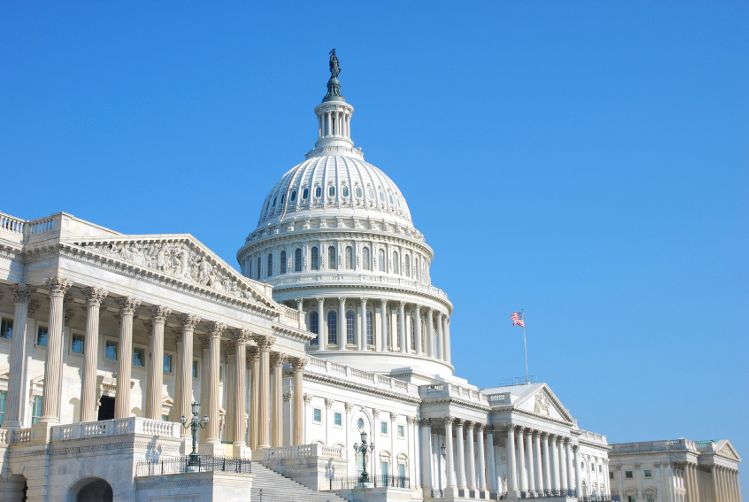Senator Durbin introduces Dietary Supplement Listing Act of 2024
Senate Majority Whip Dick Durbin has introduced the Dietary Supplement Listing Act of 2024, which would implement a mandatory product listing (MPL) for manufacturers of dietary supplements.
Photo © iStockphoto.com/uschools

U.S. Senate Majority Whip Dick Durbin (D-IL) has introduced the Dietary Supplement Listing Act of 2024, which would implement a mandatory product listing (MPL) for manufacturers of dietary supplements. A different version of this bill was originally introduced in 2022. Durbin reached out to industry trade groups in March of 2024 urging their support for the reintroduction of the bill. The senator was particularly motivated by the spike in poison control calls and even deaths related to the unapproved drug tianeptine, which is being illegally marketed as a dietary supplement. Additionally, according to Durbin and some industry stakeholders, the implementation of a MPL would help regulators better monitor the industry which has exploded since the passage of the Dietary Supplement Health and Education Act of 1994 (DSHEA).
“FDA—and consumers—should know what dietary supplements are on the market and what ingredients are included in them. This is FDA’s most basic function, and the first step to protecting consumers,” said Durbin, in a press release. “There are more than one hundred thousand products on the market, but we don’t know critical information about most of them. Americans deserve a transparent supplement market, and it’s past time that we deliver it for them.”
Calls for the modernization of DSHEA have been growing from within the industry from groups such as the Council for Responsible Nutrition (CRN; Washington, D.C.) and the Consumer Healthcare Products Association (CHPA; Washington, D.C.). However, both CRN and CHPA are not endorsing the bill in its current form. In a letter to the senator, CRN thanked Durbin for collaborating with industry on issues raised by the bill’s previous version, namely the fear of a de-facto pre-market approval. The current bill clarifies that the law would not create a pre-market approval process. Despite the bill’s improvements, CRN does object to new provisions which would require manufacturers to provide information that extends beyond labels and packaging inserts, to listing all of their website claims.
“This additional requirement is burdensome on industry and exceeds the original objective of the registry to provide FDA with a current snapshot of products on the market,” writes Steve Mister, president and CEO of CRN, in a letter to Durbin. “Indeed, once FDA is aware of the presence of a dietary supplement ingredient from the submission of the label information, it could easily perform internet searches for any particular product to examine additional marketing claims on a website. But demanding companies submit that information (and keep it up-to-date as websites change) encumbers them with an ongoing administrative burden.”
In a statement, Scott Melville, president and CEO of CHPA, lamented the “limited scope of the legislative proposal,” preferring a more “comprehensive approach that cracks down on illegal activity and better protects consumers.”
“While we agree that Mandatory Product Listing (MPL) is a good first step, it is simply not enough as a stand-alone measure,” said Melville. “Under this bill as currently written, FDA would still lack the resources and authority needed to quickly and efficiently remove illegal products like tianeptine from the market, and because it fails to present a comprehensive framework, it would do nothing to prevent criminals from simply removing the term ‘dietary supplement’ from their label to avoid the MPL requirement.”
The American Herbal Products Association (AHPA; Silver Spring, MD) is also opposed to the legislation. “We have yet to be convinced that the potential benefits of MPL requirements would justify their costs – both to industry and FDA – as well as the potential unintended consequences that would result from the establishment of such a system,” said Robert Marriott, AHPA director of Regulatory Affairs, in a press release. “Even so, AHPA supports more narrowly tailored and effective legal reforms that will reflect the needs of an evolving marketplace. We will continue our work across the herbal products community, in cooperation with federal decisionmakers, to advance public health and ensure broad access to safe and well-regulated dietary supplement products.”
The Natural Products Association (NPA; Washington, D.C.), which has always been critical of MPL, called the legislation “misguided and unnecessary.”
“This proposal has been rejected repeatedly because it’s bad for consumers and bad for American manufacturers and retailers and it should be rejected again. We were hoping to have a productive discussion with the Senator and his team but evidently they are not interested in that and only scoring political points,” said Dr. Daniel Fabricant, president and CEO of NPA in a statement. According to Fabricant, FDA has all the tools it needs to take action against dangerous ingredients, and effectively monitor products on the market.
“The FDA already has access to information regarding who is making dietary supplements, what products are made at which facilities, when new ingredients are introduced into commerce, and whether any products are associated with serious adverse events,” Fabricant explained. “This old proposal will hurt consumers and needlessly damage the industry as it mirrors over-the-counter premarket drug regulations and is more stringent than current regulations, including, the NDI provision which is a notification rather than a pre-market approval. This bill is entirely at odds with the current regime which has delivered world-class consumer safety and broad access to important nutritional supplements for over a generation.”
Updated August 2, 2024 at 2:33 PM










